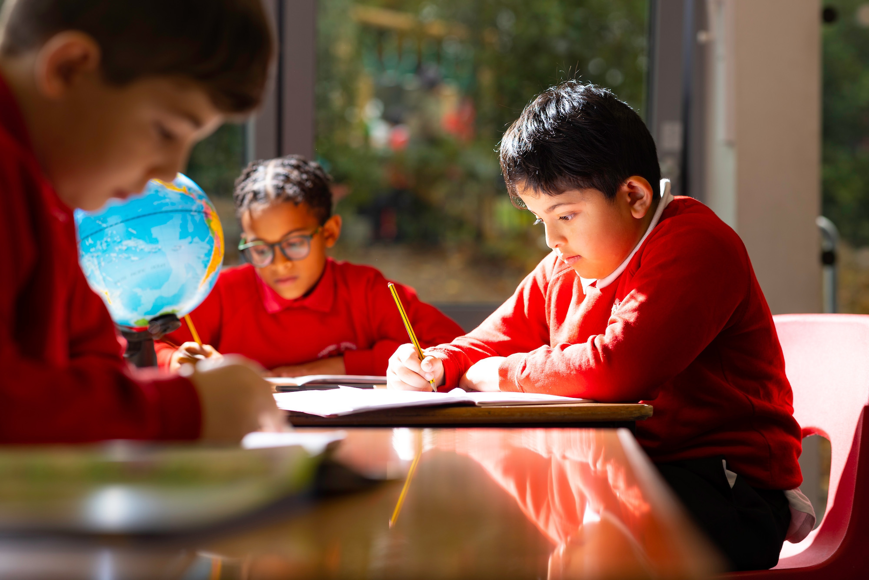- Home
- Curriculum
- Subjects
- R.E (Religious Education)
R.E (Religious Education)
Progression of skills document

Intent
RE at Marnel Junior school aims to give children the knowledge, critical thinking skills, open minded and respectful attitude with which to investigate the world of religion and beliefs and make their own decisions about what this means to them, whilst empathising with what it means to those who hold those beliefs. We aspire to have an RE curriculum which contributes to pupils’ personal development and well-being and to community cohesion by promoting mutual respect and tolerance in a diverse society. Our RE curriculum forms an integral part of our moral ethos offer and enriched curriculum.
Implementation
At Marnel we teach Religious Education through the scheme ‘Discovery RE’
which is a comprehensive, enquiry-based teaching programme for Religious Education. Our belief is that by using this model, children’s critical thinking skills can be developed, their motivation to learn increased, and their knowledge and understanding of, and empathy with people and their beliefs, religious or otherwise, will be enhanced. This approach takes very seriously the philosophy that children are free to make their own choices and decisions concerning religion and belief.
The lessons are lively and challenging and pupils achieve the same high standards as those in other subjects. Discovery RE allows pupils to be active and engaged through using a philosophical enquiry approach which deepens and extend pupils’ investigation into religion. Each half term the children explore the chosen religion through big enquiry questions which motivates in-depth exploration of knowledge, self-reflection and application to come to a personal answer.
Some of the big questions explored include:
Is it true Jesus came back to life again?
Does joining a Khalsa make a person a better Sikh?
Does belief in Akhirah (life after death) help Muslims lead good lives?
Is the Christmas story true?
Each mid-term plan follows a four step process which 5-6 lessons are then planned from.
The four steps are:
• Step 1: Engagement: the children’s own human experience is explored to act as bridge from their world (which may or may not include religion) into the world of the religion being studied.
• Step 2: Investigation: the teacher will guide the children to explore and investigate appropriate subject knowledge relevant to that question of enquiry.
• Step 3: Evaluation: an assessment activity enables each child to show their thinking and the depth of critical evaluation.
• Step 4: Expression: This refers the children back to the starting point of their own experience and allows them to reflect on whether their findings have influenced their own thinking.
Our RE curriculum directly ties into our moral ethos offer and works towards promoting our learning behaviours of tolerance, respect, co-operation, resilience, open-mindedness and resilience which directly work towards promoting British Values within our school. Discovery RE also makes an important contribution to our personal, social, health and economic education (PSHE education) as it offers opportunities for personal reflection and spiritual development, deepening the understanding of the significance of religion in the lives of others – individually, communally and cross-culturally
Impact
Discovery RE allows Marnel to directly meet the spiritual, moral, social and cultural development as stated in Section 78 (1) of the 2002 Education Act: ‘all pupils should follow a balanced and broadly based curriculum which ‘promotes the spiritual, moral, cultural, social, mental and physical development of pupils and of society, and prepares pupils for the opportunities, responsibilities and experiences of later life’. Our pupils will leave our school with a strong knowledge and understanding of the religions and beliefs which form part of contemporary society and view all religions with respect, tolerance and open-mindedness. Our pupils will be provided with the knowledge, skills and understanding to discern and value truth and goodness, strengthening their capacity for making moral judgements and for evaluating different types of commitment to make positive and healthy choices.



